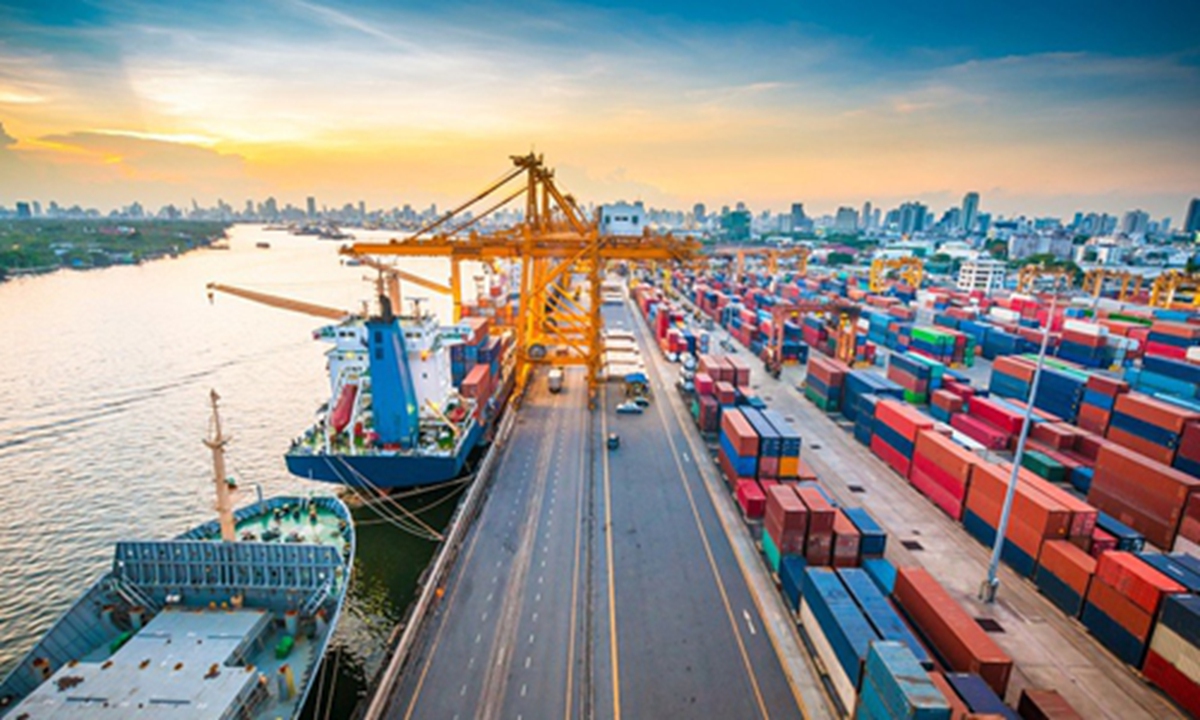Can China be the world's engine in post COVID-19 recovery?
By Song Guoyou Source: Global Times Published: 2020/7/16 22:16:57

Photo: VCG
China's GDP grew 3.2 percent year-on-year in the second quarter, reversing from a 6.8-percent contraction in the first quarter. As the first major economy to show a recovery from coronavirus damage, will China become the world's "engine of economic growth" in post COVID-19 pandemic recovery, as it did in the 2008 financial crisis?China's economy did provide strong leadership for the global economic growth after 2008. With the support of macro policies, China bought vast quantities of raw materials and goods from other countries, injecting great power into global growth. Today, the Chinese economy has grown substantially. There is some reason to believe that China will drive global economic growth more intensely.
However, the situation is different from the last crisis and the problem is not on China. Compared with the period of the 2008 financial crisis, the current international political situation has undergone tremendous changes. Some countries have become unconcerned about whether China can drive global growth economically and they seem not at all interested in whether the global economy recovers.
The major diplomatic policy aims of these countries have shifted regarding containing China in geopolitics, ideology and international order, while the COVID-19 pandemic is raging in their countries. Faced with such an international environment, although China has the strength and willingness to pull the gloomy global economy out of recession, it's hard for it to manage this goal on its own.
The world economy's relatively quick recovery from the 2008 financial crisis was largely thanks to global policy coordination and the strong joint forces of all economies. But now containment has replaced cooperation and exclusion has replaced tolerance. Some countries impose malicious restrictions on Chinese investments and flagrantly interrupt trade with China.
The strong restrictions on scientific and technological exchanges by these countries and their unreasonable sanctions around the Xinjiang and Hong Kong issues are not conducive to China's power as a global economic engine.
If these countries allow the trend to continue, the world economic system could be gradually fragmented, with difficulties in the flow of international economic factors increasing and obstacles to global economic growth becoming greater.
Because of the new situation described above, it may not be realistic to expect China to drive global economic recovery as it did in 2008. The latest data shows that China's imports and exports both increased in June. However, the decline in China-US trade is more obvious and China-Europe trade has slightly decreased.
China's trade with ASEAN has grown significantly. ASEAN has become one of the fastest growing regions in the world, which is closely related with the region's increasingly integrated economic links with China.
The key to whether China can become the major driver of the global economy this time depends on whether other countries can meet with China half-way and exert joint efforts to promote global economic growth.
The author is deputy director of the Center for American Studies, Fudan University. bizopinion@globaltimes.com.cn
Posted in: EXPERT ASSESSMENT